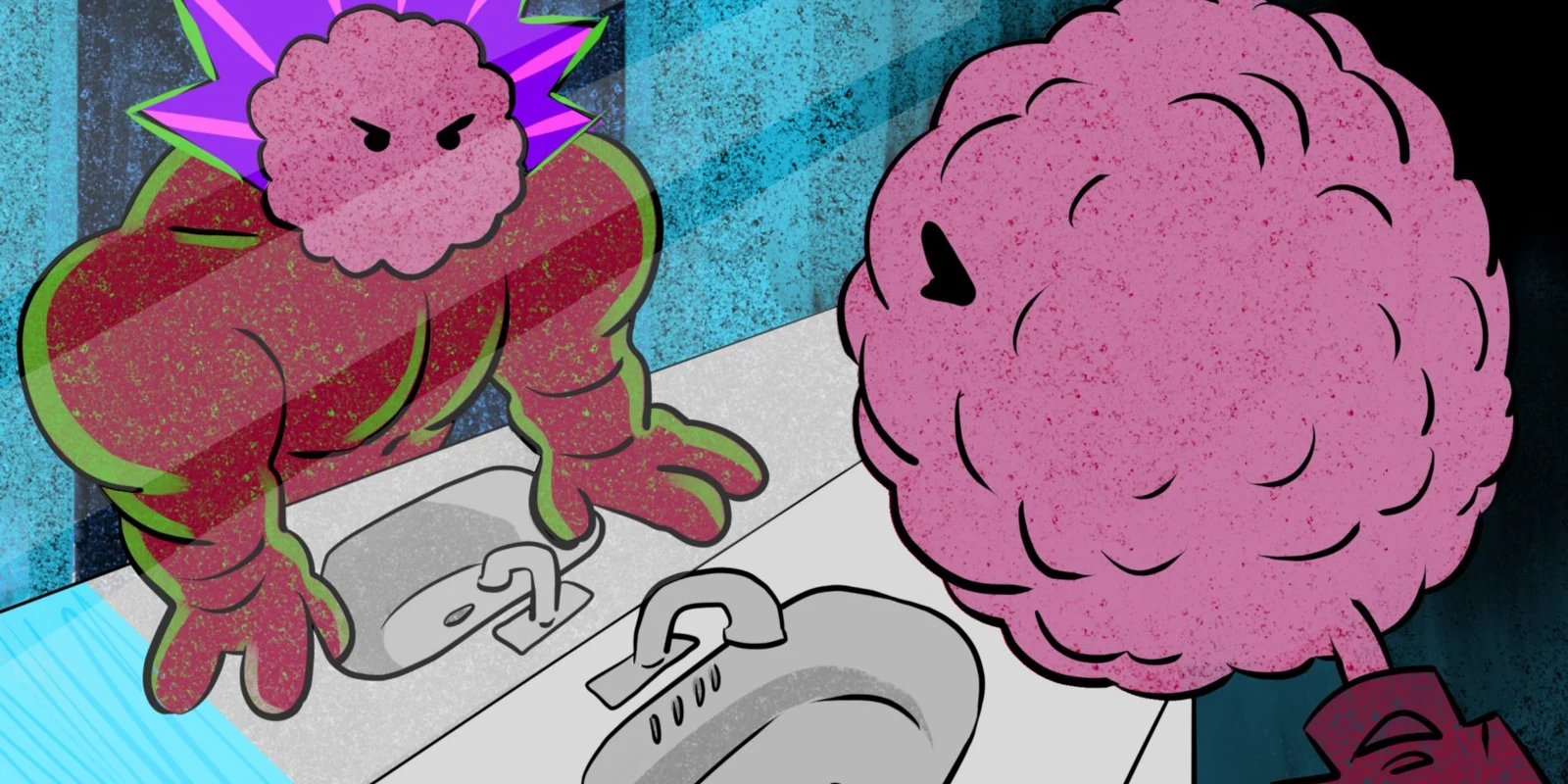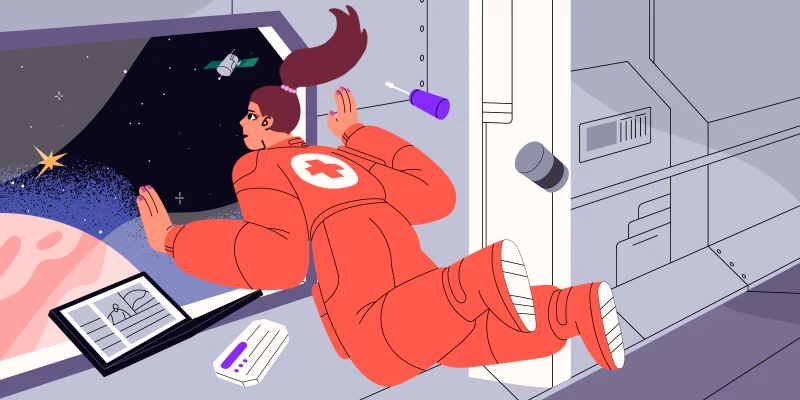
A Prose Poem and Conversation With Emily Silverman, MD
This is part of the Medical Humanities Series on Op-Med, which showcases visual and literary art by our members. Do you have a poem or visual art piece you’d like to share with the community? Send it to us here.
Progress
You did not know what it meant, friend, when a lump started growing in your neck in college, but now, over a decade later, that node gnarled and dead, a new immune system churning in the pulp of your bones, you sit across the table from me wearing green scrubs, humble and bright. It’s a quiet night at the VA, and you and I are talking science — the hard stuff, your territory — and while I knew you were handy with a pipette, I did not know you could launch, off-the-cuff, into beautiful descriptions of modern cancer therapy. It’s microscopic warfare: let’s subdue this overzealous enzyme; let’s unleash a lymphocyte army; let’s enlist antibodies that sail, with great precision, toward their targets — and the more you talk, the more I lean forward, feeling very conscious of how (thanks to you) old pieces of knowledge, rusted from years of disuse, are flying together like magnets from remote corners of my mind and taking cohesive shape. Consider the average prostate cancer, you say, turning over a sheet of paper and sketching as you go — this was my favorite part of your monologue — it feeds on hormones, so shouldn’t chemical castration starve it to death? Well, the cancer starves, to be sure, but no one expected the subsequent backlash: a cellular identity crisis! Sapped of its testosterone bath, that delicate prostate cancer may become confused and start to wonder, Am I even a prostate carcinoma anymore? Perhaps now I am a neuroendocrine tumor? and then proceed to experiment — dye its hair purple, for example, or start playing loud music in the basement. Sadly, these rebellious growths, deprived of their hormonal lifeblood by oncologists, are more vicious and resistant to therapy than ever before. Conundrum! But science keeps moving, doesn’t it, friend? It’s a stalling game; we whack the mole with our molecular mallets and wait for it to change positions and rise again. What new mallet will you build? How far could we go? Some speak of a Cure, and while I hate to talk about cancer that way (because cancer is so many different things), I sometimes dream up a cancerless world. Can you picture it now? What do you see? I see oceans of people with dementia, and the brain — oh man — that one might take a bit longer to figure out.
Progress won second prize for Best Essay in the 2016 LitQuake Writing Contest.
What inspired this piece?
This piece was inspired by a colleague of mine who was a cancer survivor and later became a talented basic scientist. Once, on a quiet overnight shift, he gave me a “chalk talk” on the state of cancer therapy — sort of a 20,000 foot view of the field, with a broad summary of each treatment strategy (e.g. chemotherapy, immunotherapy), and how it was evolving. It was so interesting, and I was so impressed by his ability to frame a complex topic like cancer treatment in simple, easy, understandable terms. I learned a ton from him, and he was really generous and humble about it all. The conversation also spurred me to think about the end-game of medical care. We’ve developed all of these treatments and technologies to prolong life, but we’ll never escape mortality, so as a result, we’re seeing an aging population, and increased rates of dementia because people are surviving longer. So it seems once you solve one problem, a new one arises.
Why did you choose this form (prose poetry) for this topic?
Around the time I wrote this piece, I had just read Mary Louise Parker’s “Dear Mr. You,” and was inspired by her rhythmic, poetic writing style, and the way she addressed various subjects as “you.” I hadn’t seen a lot of people write in the second person, and I thought it was cool. So I was experimenting with that voice. These little prose-poems are what popped out. I wrote about 10 of them.
How did you get into prose poetry? Do you do other forms of creative writing? How does this relate to your medical practice?
Working in medicine is a grind, and it’s easy to lose sight of the big picture, so I use writing and storytelling as a way to keep me grounded and stay connected to the deep meaning present in my work. I’ve tried writing in many different styles: prose, poetry, even screenplay. Currently I’m working on a book. Writing is challenging, but it’s also so fun and gratifying. I can’t not do it.
In addition to writing, you started and host a program called The Nocturnists. Do you have other creative hobbies or activities? How have you balanced a career in medicine with these creative pursuits?
Sometimes producing the Nocturnists feels like a whole other full time job! I love reading. Lately I’ve been diving into some old stuff: Orwell, Nabokov. I love George Saunders. There’s this author Sarah Manguso who is amazing. I love writing, as I mentioned above. I enjoy podcasts. I’m teaching myself how to play electric guitar. I love music! Classical, indie, folk. Going to concerts, plays, shows. Going for walks in beautiful places. It’s hard to find time to do it all. Life as an attending is getting busier and busier, and lately I find that I have to schedule in time for everything, even spending time with my partner. It’s all about organization and prioritization. Google calendar is my friend.
Emily Silverman, MD is currently an academic hospitalist at the Zuckerberg San Francisco General Hospital where she seeks out projects that resurrect the narrative soul of medicine. She is the host and creator of The Nocturnists, a live storytelling event and podcast for physicians and other health care workers. She wrote a series of prose poems about her experiences as a medical resident, and is working on her first book. Her writing is animated by a deep-seated curiosity about science, human nature, and what it means to live and die well. In her spare time she enjoys teaching herself electric guitar, listening to podcasts, and traveling with her husband Boaz. She tweets @ESilvermanMD.
Illustration by April Brust.




